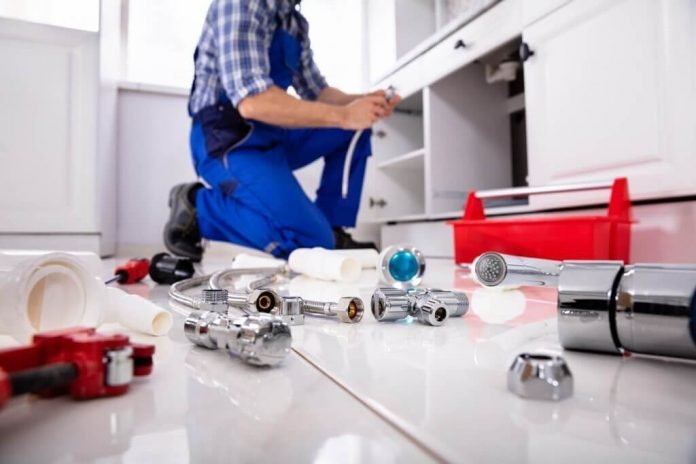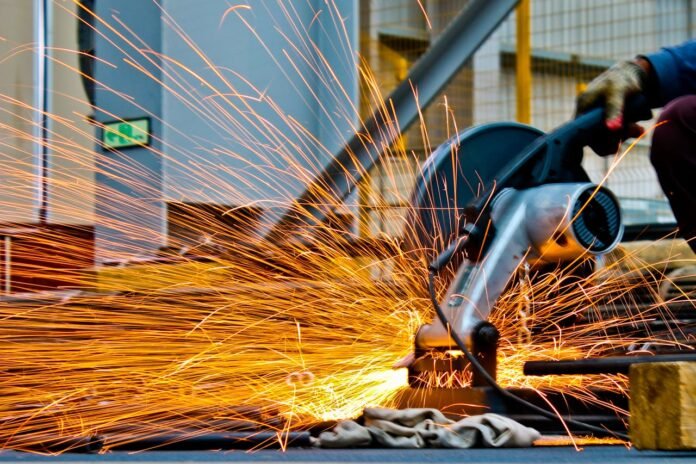Plumbing plays a crucial role in our daily lives, yet it’s a facet of homeownership often overlooked until a problem arises. The moment you turn on the tap and nothing happens or a leak springs, you realize the importance of a well-maintained plumbing system.
In this guide, we’ll explore the top 10 common plumbing issues and provide practical solutions for each, empowering you to handle these challenges with confidence.
1. Leaky Faucets: One of the most common issues, a leaky faucet not only wastes water but can also lead to higher utility bills. The solution often involves replacing a worn-out washer or O-ring. Turn off the water supply, disassemble the faucet, and replace the faulty part with a new one.
2. Clogged Drains: Clogged drains are a frequent annoyance in households. Combat this by using a plunger or a drain snake to remove the obstruction.
3. Running Toilets: A running toilet can waste a significant amount of water. The problem usually lies with the flapper valve or the float. Adjust or replace these components to stop the continuous flow and save on water bills.
4. Low Water Pressure: Low water pressure can be frustrating, often caused by mineral buildup in faucets and showerheads. Clean these fixtures or replace them if necessary. Additionally, check for hidden leaks in the pipes, which could be contributing to the issue.
5. Water Heater Issues: A malfunctioning water heater can disrupt your daily routine. Check the pilot light, thermostat, and heating element for issues.
6. Faulty Garbage Disposal: A jammed or malfunctioning garbage disposal can be remedied by using an Allen wrench to manually turn the disposal’s motor. Avoid putting non-food items down the disposal and always run cold water while using it to prevent clogs.
7. Pipe Leaks: Leaky pipes can lead to water damage and mold growth. Identify the source of the leak and tighten loose connections or replace damaged sections. For larger leaks, consider shutting off the water supply and calling professional Plumbers Dunwoody.
8. Frozen Pipes: In colder climates, frozen pipes are a common issue. Thaw frozen pipes using a hairdryer or heating pad. To prevent future occurrences, insulate exposed pipes and allow faucets to drip during freezing temperatures.
9. Sump Pump Failure: A malfunctioning sump pump can result in a flooded basement. Regularly test the pump by pouring water into the pit and ensuring it activates. If it’s not working correctly, check for debris clogs or consider replacing the pump.
10. Septic Tank Issues: Septic tank problems can lead to unpleasant odors and backups. Schedule regular septic tank inspections and pump-outs to prevent issues. Avoid flushing non-biodegradable items down the toilet to maintain the system’s efficiency.
By understanding these common plumbing issues and learning how to address them, homeowners can save time, money, and stress. While some problems can be resolved with simple DIY solutions, it’s essential to recognize when professional assistance is necessary.
Regular maintenance and prompt action can help keep your plumbing system in optimal condition, ensuring a reliable supply of clean water for your household.
Plumbing Tips for Landlords: Maintaining Rental Properties
Owning rental properties can be a good investment. However, these types of investment come with its fair share of responsibilities. Among the crucial aspects of property maintenance, plumbing plays a pivotal role in ensuring the comfort and satisfaction of your tenants. Here are some proactive plumbing tips for landlords to maintain rental properties efficiently.
Regular Inspections: Schedule regular plumbing inspections to identify potential issues before they escalate. Hire a professional Plumber Lawrenceville GA to assess the condition of pipes, fixtures, and appliances. Addressing minor problems early can prevent major headaches down the line.
Invest in Quality Fixtures: Opt for high-quality plumbing fixtures that are durable and built to last. While it might be tempting to cut costs, investing in reliable faucets, toilets, and pipes can save you money in the long run by reducing the frequency of repairs and replacements.
Educate Tenants: Provide your tenants with basic plumbing tips to prevent common issues. Encourage them to report any leaks, drips, or unusual water usage promptly. Educating tenants on proper disposal practices and what can and cannot be flushed down toilets can help prevent clogs.
Promptly Address Repairs: When tenants report plumbing issues, respond promptly. Ignoring or delaying repairs can lead to more extensive damage and result in disgruntled tenants. Establish a reliable network of plumbers who can address issues quickly.
Install Leak Detection Devices: Consider installing leak detection devices in key areas, such as under sinks and near water heaters. These devices can provide early warnings of leaks, allowing you to address issues before they cause significant damage.
Regular Drain Maintenance: Schedule routine drain cleaning to prevent clogs and backups. Accumulated hair, grease, and debris can lead to slow drains or blockages. A proactive approach to drain maintenance can help avoid plumbing emergencies.
Know Your Property’s Plumbing System: Familiarize yourself with the layout of the plumbing system in each property you own. Knowing where shut-off valves, water meters, and main sewer lines are located can save valuable time in the event of an emergency.
By adopting these proactive plumbing tips, landlords can ensure their rental properties remain in good condition, reduce the likelihood of emergencies, and cultivate positive relationships with tenants. Regular maintenance not only preserves the property’s value but also contributes to a hassle-free rental experience for both landlords and tenants.








